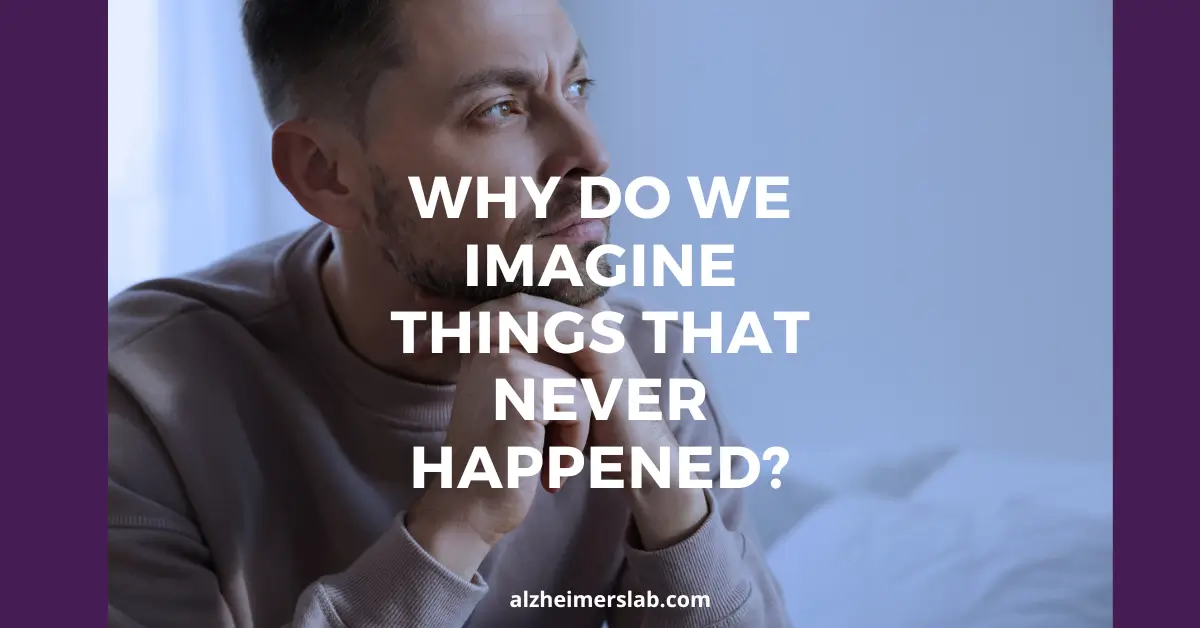Why Do We Imagine Things That Never Happened?
Have you ever been absolutely sure that something happened, only to find out later that it didn’t? Maybe you vividly remember a conversation that never took place or recall seeing a movie scene that doesn’t exist. Our minds are powerful, but they are not perfect. Sometimes, they create memories or experiences that feel real, even though they never actually happened.
Imagining things that never happened is common and happens for many reasons. Our brains sometimes mix real memories with imagination, get influenced by outside information, or even fill in gaps when details are missing. It’s a natural part of how memory works, not a sign that something is wrong with you.
Why Does the Brain Imagine Things That Never Happened?
Your brain is not like a video recorder. It doesn’t store every detail of your life exactly as it happened. Instead, it keeps pieces of information and fills in the missing parts with guesses. This is why you might remember things in ways that never actually happened.
Here’s how this works:
- Memory reconstruction – When you remember something, your brain rebuilds the memory rather than playing it back exactly. Sometimes, it adds details that weren’t there.
- Influence of suggestions – If someone tells you a false detail about an event, your brain might accept it as real.
- Emotions and beliefs – Strong emotions can make you “remember” things differently. If you believe something strongly, your brain may shape memories to match that belief.
Can False Memories Feel Real?
Yes, false memories can feel just as real as true ones. Studies show that even confident people with strong memories can have false recollections. This happens because your brain doesn’t tag memories as “real” or “false.” If a memory is detailed and feels right, your brain accepts it.
For example, people in studies have been given fake childhood stories, and many believed these stories were real. Some even added extra details, like what they were wearing or who was there. Their brains filled in the gaps to make the false memory feel true.
Is Imagining Things That Never Happened a Sign of a Problem?
Not necessarily. It’s normal for everyone to imagine things that didn’t happen. It becomes a concern only when it starts to affect daily life. Here are some cases where it might be a problem:
- Frequent confusion between real and imagined events – If this happens often and causes distress.
- Hallucinations or delusions – If you see or hear things that others don’t, it might be a mental health issue.
- Severe memory gaps – If large parts of your life seem unclear or mixed up, it could be worth discussing with a doctor.
Most of the time, though, imagining things that never happened is just a normal part of how the brain works.
How Do Outside Influences Shape Our Imaginations?
Other people and media can change what we think we remember. This happens a lot in everyday life.
- Movies and TV shows – Have you ever been sure a famous movie line was one way, only to find out it was different? This is called the Mandela Effect, where many people share the same false memory.
- Conversations with others – If a friend tells a story differently than how you remember it, your mind might adjust your memory to match theirs.
- News and social media – Seeing repeated information, even if it’s false, can make you believe it’s true.
Can Imagination Be Useful?
Even though our minds sometimes create false memories, imagination is not a bad thing. In fact, it’s necessary for creativity, problem-solving, and learning.
- Creativity – Writers, artists, and musicians use imagination to create new things.
- Planning for the future – Imagining different possibilities helps us prepare for real-life situations.
- Building empathy – We imagine what it’s like to be in someone else’s shoes, which helps us connect with others.
How Can You Tell If a Memory Is Real or Not?
It’s not always easy, but here are a few ways to check if a memory is real or imagined:
- Look for proof – Photos, videos, or other people’s recollections can help confirm details.
- Ask yourself if there’s an outside influence – Did you see this in a movie? Did someone suggest it to you?
- Check how clear the memory is – Real memories usually have more details, while imagined ones might feel vague or “dream-like.”
What Can You Do to Strengthen Your Memory?
If you want to improve your memory and avoid false recollections, try these tips:
- Write things down – Keeping a journal helps confirm what really happened.
- Double-check facts – If you’re unsure about something, verify it with reliable sources.
- Be mindful of suggestions – Be aware that other people’s memories and media can influence your own.
Key Points to Remember
- Your brain does not store memories like a camera—it fills in gaps and sometimes creates false details.
- False memories can feel real because the brain reconstructs them.
- Outside influences, like conversations and media, can change what you think you remember.
- Imagination is useful and plays a role in creativity, planning, and empathy.
- If a memory feels unclear, checking for proof and outside influences can help confirm if it’s real.
- Writing things down, verifying facts, and being mindful of suggestions can help strengthen your memory.
Thanks for reading! I hope this article helped. If you have any questions, comment below.

